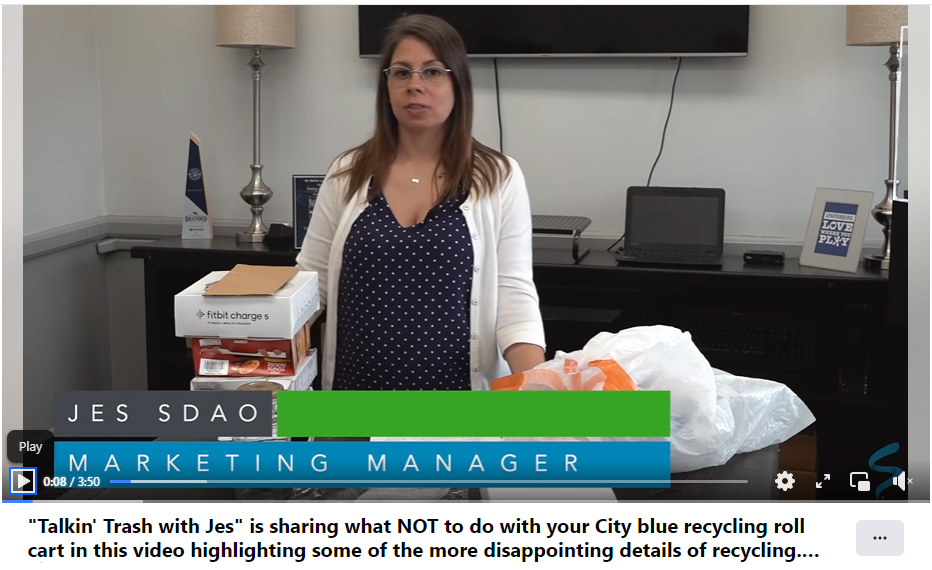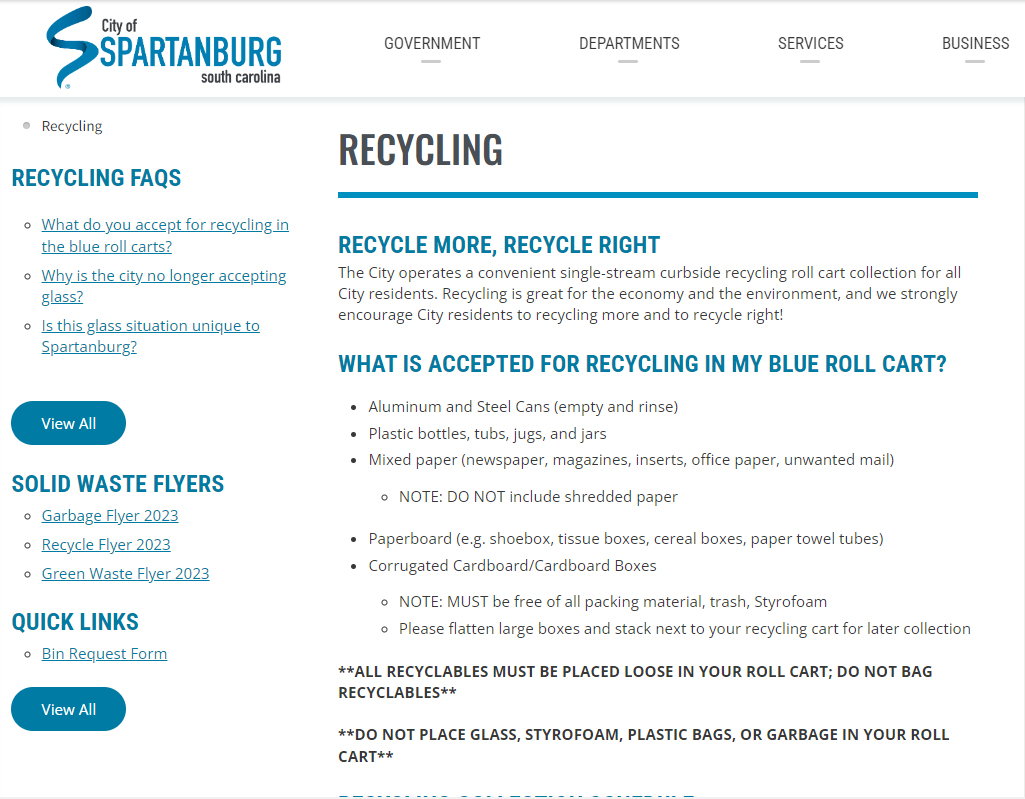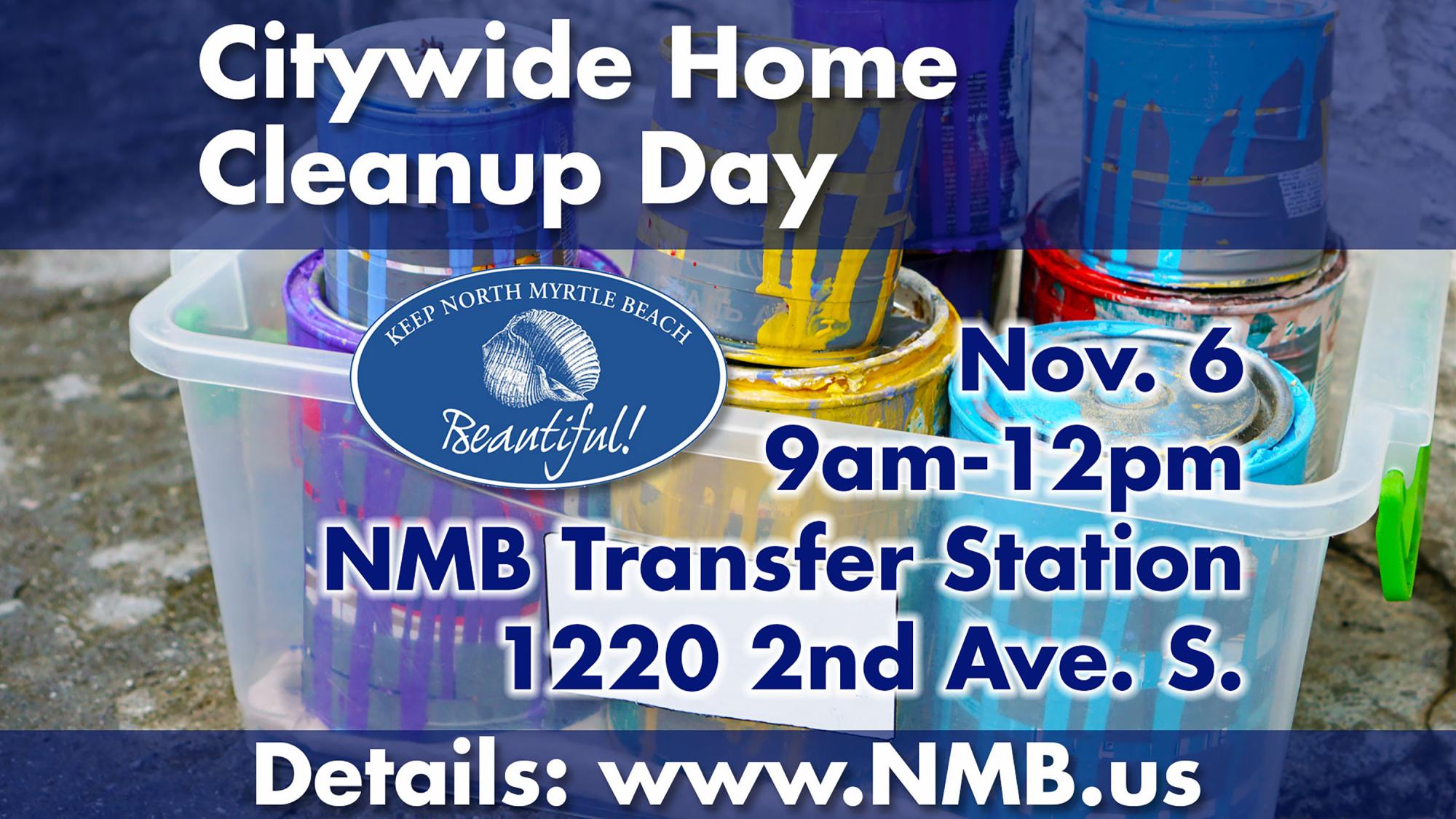Collecting trash and recycling is a critical part of many municipalities’ services, but it comes with a significant communications challenge — how do they talk about it in a way that will resonate with constituents, outline proper handling protocol, and how to do so pleasantly. The City of Spartanburg and the City of North Myrtle Beach are two municipalities taking the lead on turning the trash talk conversation into a polite one. Here’s how.
For Jes Sdao, marketing manager for the City of Spartanburg, talking about trash is just another day at the office. In her newly-appointed position, she has made a career of just that. Also the host of the “Talkin’ Trash with Jes” YouTube videos, Sdao started her career journey with the City of Spartanburg in 2005 as an environmental educator, creating environmental education programs for children. With a background in environmental education and environmental studies, she started out by teaching kids about the environment, from gardening to recycling to exploring nature trails.
Then after her time with the parks and recreation department, Sdao took a pause to pursue higher education, and found her way back to government, this time with the Spartanburg County Soil and Water Conservation District.
“I did that for about four years and got really deeply into stormwater and urban stormwater runoff pollution,” she said, which also included a little bit of agriculture, because of the Natural Resources Conservation Service. “Ultimately, I kept coming back to environmental education … I would go to schools, and I would talk to kids about various topics — ecology, stormwater pollution, ways that we can all do our part to save the environment.
However, she kept coming back to a subject that she was most passionate about: recycling.
“This is going to be a really strange way to phrase it, but recycling is sexy – people like it; people want to hear about it; they want to talk about [it],” Sdao said. “If you tell people that you’re into recycling, the first thing they say is, ‘I recycle everything! I’m so into it.’"
In 2012, Sdao made recycling as a career her reality when she became the head of the program for Spartanburg County, a position she held for 11 years.
“People want to know: how do I get rid of my waste? How do I recycle this? Why do I recycle? What to recycle?” she said. “People wanted to know this. I was already doing education programs; so, I created our social media and kind of ran that.”
While at the county, Sdao started publishing the “Talkin’ Trash with Jes” educational videos, an informal way to educate the community on trash and recycling.

Last year, Sdao carried her expertise over to her new position as marketing manager for the City of Spartanburg. Although in a new role, she said her passion for the topic did not leave.
“I had already been working very closely with the city because the city and county both run their own recycling programs and Spartanburg County handles . . . what the city’s curbside collections cannot handle – stuff like, motor oil, cooking oil, appliances, electronics, tires,” she said.
Already acquainted with the city’s department, Sdao said that when she stepped into her new role as marketing manager, she met with the public works department to discuss ways to better market the program. After speaking with her supervisor and communications manager, Christopher George, Sdao was able to resume her “Talkin’ Trash with Jes” videos focusing more on the city’s program.
“And it does bleed in a little because there are topics where people want to know, how do I get rid of something that the city doesn’t handle? Because the programs coincide, I get to talk about them concurrently,” she said.

To further get the word out, Sdao takes to social media. “I try to post a few times a month. I don’t want to overwhelm people with information, but I circulate the same information phrased in different ways on a pretty regular basis,” she said. Posts range from sustainability tips to showcasing Spartanburg as a sustainable place to live. “I want to keep information fresh in peoples’ minds while still not beating the dead horse.”
As for her new position, Sdao says that she is in a unique role to provide public works marketing.
Over in Horry County, the City of North Myrtle Beach does not take rubbish removal lightly, making how to handle trash and recycling is a high priority.
“Our website is a huge resource for the city,” said Lauren Eckersley, who was recently appointed to the position of public information officer. “If [residents] have any questions about sanitation or street drainage and water and sewer – we have an abundance of information on the website under our public works tab, so we always point people in that direction if they need specific information.”
The same goes for changes in the trash collection schedule, like holidays, she said, including that the city will push out information through its social media, in a newsflash that runs on the bottom of the city’s website, and via text alerts to those who subscribe.

“We also do eblasts through Constant Contact, and if they subscribe to our email, they’ll also get those notifications as well,” Eckersley added.
An additional resource to get the word out is by way of a jumbotron, formally known as the Main Street Events Sign, at the intersection of Highway 17 and Robert Edge Parkway.
“It’s a digital screen, so we’ll create graphics to upload onto there, that will run so it’s very visible to people driving by,” she said.
Events are yet another way of getting the word out about trash. The city recently held a citywide clean-up day hosted by volunteers with Keep North Myrtle Beach Beautiful. Over 100 vehicles turned up to dispose of waste and recycling.
“They were even doing everything, even paper shredding,” said Eckersley. “We put that out through our social, like our eblast and our newsflash, and the sign to try to push that. That was a big event for us.”
To further the initiative, the city also partners with Coastal Waccamaw Stormwater Education and their education partner, Clemson University Cooperative Extension, which provides educational resources and pamphlets on composting and how to dispose of certain wastes, among other topics.
In her new role as public information officer, Eckersley sees the direction going more digital and visual, trying to implement more social media channels — Facebook Live, graphics, photos and video.
“That’s my goal for this position,” she said.
Trash and recycling services might come with their own technical considerations, but communicating about them effectively is still a case of being personable, paying attention to what gets residents’ attention, and meeting them on the media platforms where they are.
